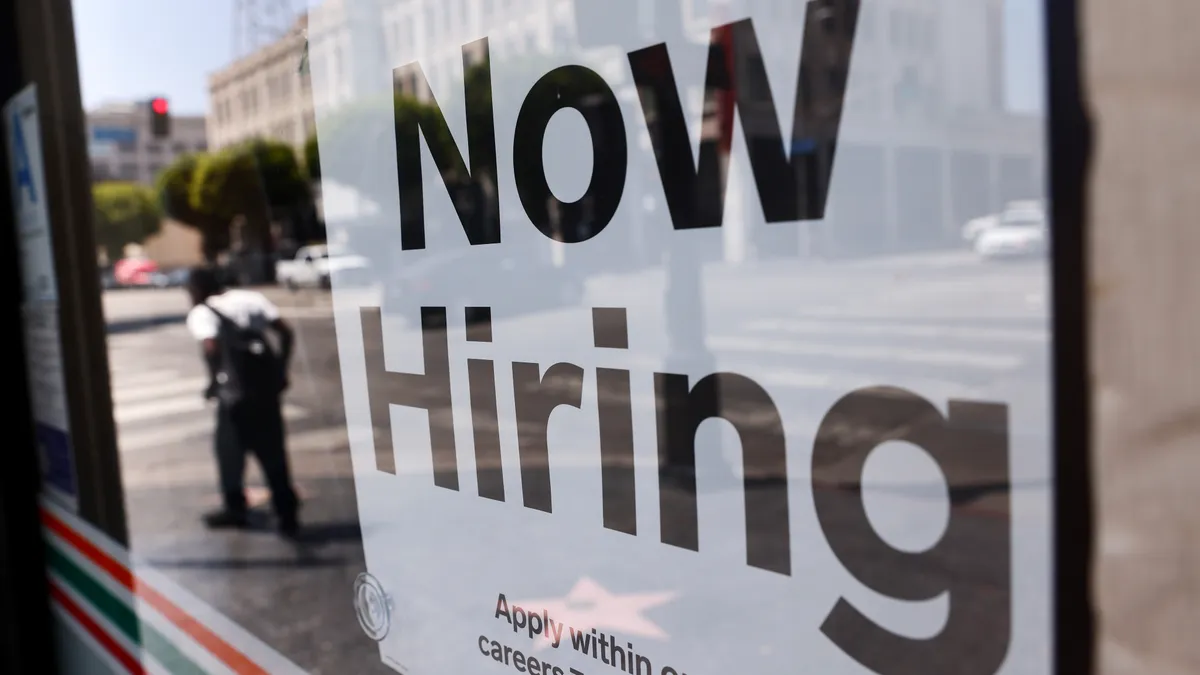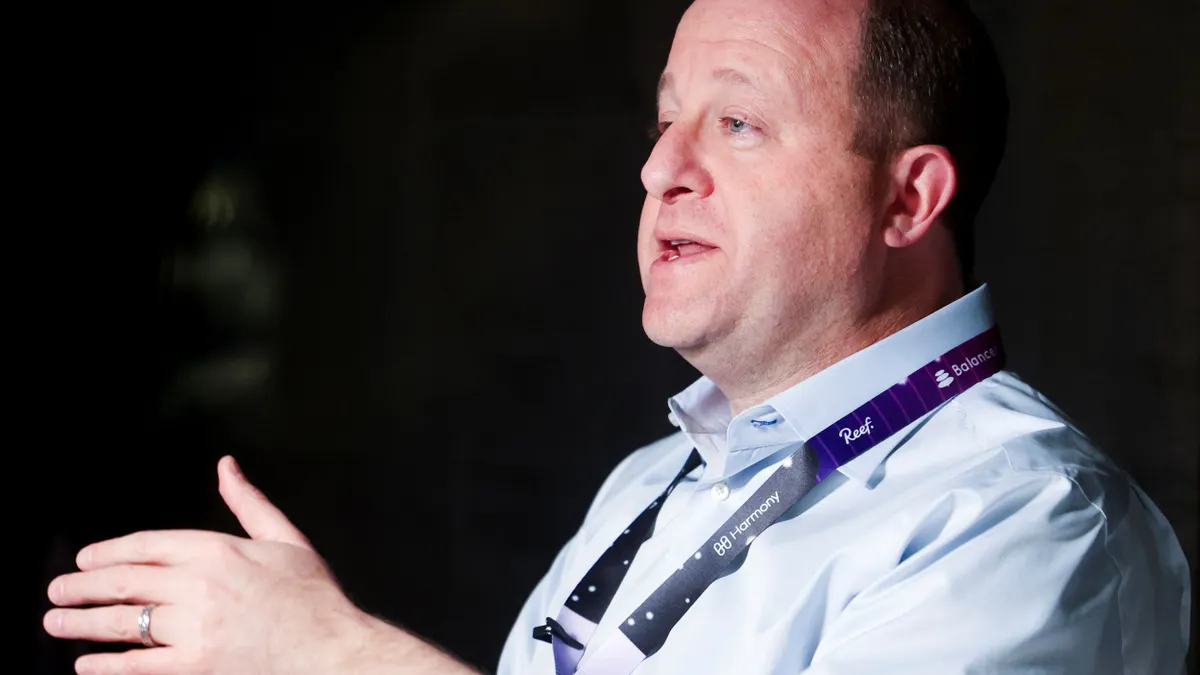As Generation Z start their careers, they’re bringing new expectations and aspirations to an ever more dynamic workforce.
For Gen-Zers aspiring to be CFOs, they will likely need to come to the seat with degrees, backgrounds and skills that go beyond just the traditional finance or accounting degrees, experts say. These jobs are no longer, or perhaps never were, the glorified bookkeepers that many sometimes pegged them as.
The traditional accounting path to the CFO chair will be less common in the future, Jack Castonguay, an assistant professor of accounting at New York’s Hofstra University said — instead of pure finance skills, companies will be searching for leaders familiar with wide-reaching aspects of the business.
“If they've seen the business from multiple angles, if they know the product well, if they really know the investor base well, it doesn't really matter if they can prep the statements just as long as they can communicate them,” Castonguay said in an interview.
Broadening the CFO pathway
With workers in the age groups between 16-to-24 and 25-34 expected to make up nearly 34% of the U.S. workforce by next year, many employers are scrambling to adjust to younger workers’ wants and needs. An accounting degree and CPA license — credentials which have historically been nearly must-haves for would-be CFOs — are not necessarily needed right now.
That may in part be a supply problem. There is a shortage of accountants, with a narrowing number of new graduates. While current accounting students generally have positive views about how the degree will impact their futures (79% believe it will grant them long-term career benefits, while 34% say it will lead to leadership opportunities, a recent survey by Big Four firm Ernst & Young shows), the profession is struggling to attract new blood.
The accounting talent crisis is also turning the tables on the demand side of the equation: it’s putting the pressure on employers to raise salaries and look outside the accounting track for fresh avenues to pluck new CFOs from. And along the way, hirers are tweaking the formula as they seek to rebrand the accounting profession as a less dull, more engaging, innovative field.
That the traditional CFO role has evolved to grow beyond that of controllership or the skills of a CPA is clear to Rene Ho, CFO of San Francisco, California-based working capital management company Taulia. Finance chiefs today must increasingly hone their data skills to find insights and drive company strategy.
“I work very closely with the data team to say, ‘well, the data shows this, what's the real underlying trend?’” he said in an interview.
The number of CFOs who hold CPA certifications has shrunk over the past decade. Less than half (43%) of CFOs in the S&P 2000 had CPA designations in 2022 compared to the 55% of finance chiefs who reported having them in 2012, according to a recent study by leadership advisory firm Russell Reynolds Associates.
Fewer early career CFOs are coming from Big Four accounting firms such as Ernst & Young, Deloitte, KPMG and PricewaterhouseCoopers as well, the study found, with operational skills becoming more highly prized among financial professionals. Moreover, professionals in other fields such as engineering are starting to see attractiveness in a jump to finance, changing the makeup of the future CFO pipeline, Jim Lawson, co-leader of the New York-based RRA’s CFO practice said in an interview.
Ho, for example, is one of a growing number of finance leaders stepping into the finance space from engineering: 8% of finance chiefs today have undergraduate degrees in engineering, according to Crist Kolder Associates’ latest Volatility Report. Another engineer-turned finance leader, Ravi Inukonda, now occupies the CFO chair for food delivery company DoorDash, overseeing a finance team of 400 people.
While the applications of an engineering or accounting degree may differ, the mathematical skills are largely transferable, Ho said of why more engineers might be choosing the CFO or finance path — and as all aspects of the business grow more data-driven, those skill sets will only be more applicable across the organization, not just in the role of the CFO, he said.
Taking a rotational approach
Gen Z workers also face a long trek to the CFO seat, with the average age of a top finance chief falling around 51 years old, according to demographic data. That leaves plenty of time for younger potential candidates to hone the skills needed to take that future CFO chair.
Aspiring finance leaders should not negate soft skills — the “ability to speak, simply, with competence in front of a board” and to foster trust between different team members and executives is crucial, Lawson said in an interview.
“What I would tell you is the single most important thing that separates the people who make it to the CFO chair and succeed is the leadership presence,” Lawson said — it’s important for future CFOs to “own the numbers,” to be authentic and to maintain credibility, he said.
That’s not to say the pipeline of future CFOs will move entirely away from its roots, even as the parameters of the role shift and expand: future talent will continue to come from traditional financial sectors such as investment banking, Lawson said, as well as from areas like private equity, where hiring has accelerated in recent years.
Indeed, while members of Gen Z may be looking for more tech-savvy fields than accounting or for more work-life balance, they also tend to prioritize job stability, high salaries and financial independence — in fact 24% of the generation is looking for a career in financial services, a recent survey by the Chartered Financial Analyst Institute found. Additionally, both accounting students and executives support alternative pathways to the profession, EY’s survey found, with 58% of students supporting such pathways to expand the accounting pipeline.
Furthermore, data and technology skills are becoming more essential for finance chiefs as CFOs get more involved with the “operations of the business, whether data and analytics, whether it be financial operations [or] business operations,” Eric Emans, CFO of Bellevue, Washington-based process intelligence and automation firm Nintex said.
With the responsibilities of the CEO shifting and with newer roles like Chief Technology Officers entering the executive team, “there is a place for the CFO to really play in operations,” Emans said in an interview. “And the more you get into operations, I think it just lends itself to automation and understanding your processes and how things work in the org.”
Strategic shift took root a decade ago
The changing CFO role that Gen Z is seeing as they join the workplace is not altogether new. This is a major shift from ten or fifteen years ago, Castonguay agreed, where the role of the CFO was more closely tailored to compliance, but where they weren’t seen as strategic partners in the business.
“Now, the CFOs are going to be expected, for the Gen Z group, to be just as [much of] a strategic partner as the COO,” Castonguay said.
For aspiring CFOs, the critical thing to keep in mind is getting as much exposure to the different lines of business at a company, Castonguay said. Taking learning opportunities outside of the job itself, including reading books or spending one’s spare time learning about other topics can also help upcoming executives hone much-needed skills, Ho said.
“You don't necessarily have to build data models yourself,” but you need to be knowledgeable when you are speaking to people about data, Ho said.
Emans actively tries to drive this type of intellectual curiosity in his organizations, a trait which is becoming essential in a world where expanding use of technology and automation is diminishing the amount of task-oriented work employees need to take on.
Like many CFOs, Emans began his career in accounting — which still reigns as the top major for finance chiefs, according to the Crist Kolder report — serving as an auditor for Big Four firm Deloitte, according to his LinkedIn profile.
Looking back, Emans credits his more expansive view of the mechanics of business as something that set him apart from other accounts and on the path to the CFO seat.
“I saw it as a privilege to actually see how transactions kind of entered the building, if you will,” Emans said. “And then, how they eventually end up on a financial statement.”























